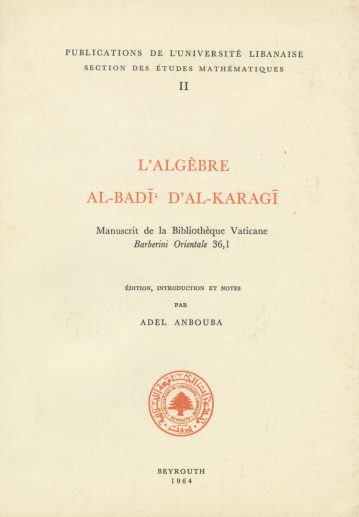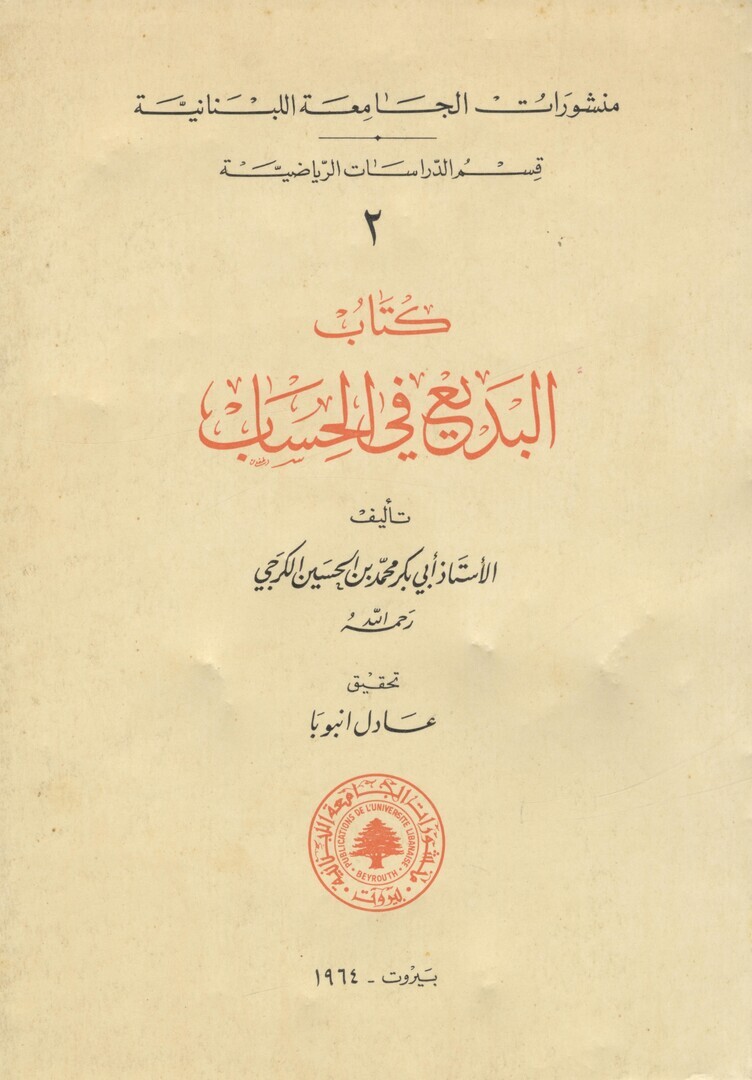L’Algebre Al-Badi’ d’Al-Karagi. Manuscrit de la Bibliotheque Vaticane, Barberini Orientale 36, 1.
Al-Karagi, Abi Bakr Muhammad - Anbouba, Adel. (Editor).
Synopsis
This work contains the study of the algebra called al-Badī‘ fī al-Hisāb (literally: “the Wonderful on calculation”), written by the Persian mathematician Abu Bakr Muḥammad ibn al-Ḥusain al-Karaǧi (previously known as al-Karẖī, native from Karaǧ, Persia. Written c. 1010 in Baghdad, this work takes an important place in history of mathematics in general. Of particular interest are the first known appearance of a theory on root extracting of algebraic polynomials, and the beginning of a tendency to get rid of illustrating formulas and the resolutions of equations with help of geometric figures, which makes it a pure algebraic text. This work of high level addresses to a public with advanced mathematic knowledge. This algebra is, by will of the author, written in three main parts (books), containing p`123456 art of Euclid’s Elements (book I), a theory on root extracting of algebraic polynomials (book II),
and a collection of problems on indeterminate analysis (book III). Some chapters are written hastily, while others go into the details. We provide a complete translation of the Badī‘, based on the transcription of the manuscript 36,1 of the Vatican library Barberini Orientale by Adel Anbouba (edited in Beyrouth in 1964), as well as a glossary. This translation comes with a mathematical commentary, and includes a list of significant words used by the author. We will also relate this algebra with other prior and later works containing the same problems.








